- Home
- Allison Brennan
Killing Fear Page 4
Killing Fear Read online
Page 4
She had better information off CNN and Fox News. She glanced behind Causey to where Detective Will Hooper stood, deceptively casual. He was watching the crowd. Looking for Glenn? Feeling out the audience?
What did the cops know that they weren’t telling?
Trinity had made a name for herself as a crime reporter, starting as a freelancer and working her way up to a star reporter with her own monthly show. She’d had every major law enforcement officer from the Attorney General down to the smallest police chief on her television program, and her ratings continued to grow. It was just a matter of time before she had New York knocking at her door.
She didn’t honestly believe that Theodore Glenn would show his face in San Diego. She’d followed the trial closely, listened to him, even interviewed him in lockup. He wasn’t a dumb criminal. But on the off chance that he did show up, Trinity wanted to be there. Reporting the news before anyone else.
That meant knowing what the cops knew. And they always knew more than they told the press.
Her hand shot up. Causey called on another reporter.
“Jerk,” she mumbled, keeping her hand in the air.
“Chief Causey,” the reporter asked, “are you alerting prostitutes to be cautious now that Glenn has escaped?”
Idiot. Glenn hadn’t gone after prostitutes. The novice certainly hadn’t done his homework.
Causey seemed at a loss. He said, “Glenn targeted women with whom he’d had a previous relationship. Our primary concern is for individuals he specifically threatened at his trial. We are contacting everyone involved in the trial, and going from there. All units are on alert, and we’re working closely with the California Highway Patrol and federal authorities to track the known movements of Theodore Glenn. As I said at the beginning, Glenn was spotted in Fresno late last night and is suspected of stealing a 2004 white Honda Accord.”
Yeah, yeah, yeah. Trinity rolled her eyes. Stupid question, leading to repetition. She waved her hand again.
Causey picked someone else. What was with him? She looked at Will, tried to catch his eye. He looked over at her, gave her a half grin, then turned his attention back to Causey.
Had Will Hooper told the chief not to call on her?
Finally, Causey pointed at her. Trinity asked, “Chief Causey, who is in charge of the task force and what are they planning on doing to protect the citizens of San Diego?”
Causey turned to Will. “Detective William Hooper, a twenty-year veteran of San Diego PD, is heading up the task force. He was involved in the original investigation and was instrumental in capturing Glenn seven years ago.”
Before Causey could call on anyone else, Trinity spoke up. “Do you have any actual indication that Glenn is headed for San Diego?”
“None,” Causey said emphatically, but glanced at Will. Why?
Will took the microphone and said, “The smart thing for Glenn to do would be to attempt to leave the country. Every cop in San Diego County—every cop in the state—is looking for him. He killed an injured guard in cold blood during his escape.
“But Glenn is not that smart,” Will continued. “Glenn only sees one thing, and that is he was convicted. Now he wants revenge. And that’s why he’ll come to San Diego. Watch for him. He may alter his appearance. But if everyone in San Diego is looking, we can catch him before he hurts anyone else, and put him back on death row.”
Theodore despised Will Hooper. And listening to the press conference on the news, sitting safe in an old, worn La-Z-Boy, and having that asshole cop call him stupid pained him.
Hooper knew damn well he was a genius. It was only bad luck that a witness caught sight of him coming out of Brandi’s duplex. He should have gone in and killed that old biddy when he saw the curtains move. But he honestly hadn’t believed she could see that far away. How was he to know she regularly used binoculars to watch the comings and goings from all her neighbors’ houses?
He’d seen the sketch on the news. It didn’t look enough like him to have him concerned. It could have been anybody.
Then to have that high-and-mighty hypocrite Robin McKenna tell the cops that he was the man in the sketch. Bad luck. It should never have happened. How that slut was able to make the connection unnerved him, and pissed him off. It was a guess on her part, simply because she didn’t like him. She’d made that perfectly clear right from the beginning.
Robin. He closed his eyes and saw her perfect form take shape. The way she moved onstage. Liquid energy. Smooth, perfect, music in motion. He’d wanted her something fierce. He saw in her eyes something he’d never seen before. An intelligence and knowledge that mirrored his. She was better than this, better than a stripper, and she knew it. Her self-confidence rivaled his. Her poise and elegance. Everything about Robin McKenna was a dream dance, an act, an image she wanted to show. Just like him. All he wanted was for her to touch him. Why didn’t she see that they were the same?
But instead of joining him, she’d turned against him. Long before she identified his sketch for the police, she turned on him. Told Bethany he was dangerous. A year before he killed the girl, Robin was warning her.
Smart, cold bitch.
He’d been set up. He hadn’t killed Robin’s pathetic roommate, yet he’d been convicted for that murder as well.
How did he know the bitch herself hadn’t knocked off her roommate to frame him? She’d wanted him out of the picture so badly. And she was cold and heartless enough to kill, of that Theodore was certain. They were two of a kind, and before he was done with Robin McKenna, she would recognize that fact.
He had his list, and he would take care of each person on it in due time. Blood was thicker than water, and he had a score to settle.
His sister should never have testified against him. She would suffer for her betrayal. Robin could wait. Watch him take his revenge on others first. She’d know he was coming for her. She’d know and that fear would fester deliciously under her flawless skin.
He smiled at the thought of Robin cowering in the corner. Waiting for him to come and put her out of her misery. Because he would. And he would not be merciful.
Jenny Olsen slouched into the living room with a tray of food. She was a fat bitch, might have been pretty if she didn’t look like a cow. But she’d been faithfully writing to him in prison these last seven years and she’d told him she’d do anything for him.
He’d called her on it when he showed up on her porch early Sunday morning.
“I hope you like it,” Jenny said, beaming.
Stupid wench.
He tasted the meal. Chicken, rice, carrots, and broccoli. The best meal he’d had in years. Simple, flavorful, home-cooked.
“Delicious,” he said honestly, favoring her with a smile.
She beamed brighter, rubbing her chubby hands together. “Can I get you anything else? A beer maybe?”
“Do you have red wine?” Theodore detested beer, and he dreaded what sort of wine this white-trash female would have on hand, but he hadn’t had a drink in seven years.
Jenny looked worried. “N-no. But I have some Scotch, I think. It was my father’s, before he died.”
“Let’s see it.”
She walked over to the hutch in the dining room. Her small fifties cinderblock house was clean but full of clutter. Knickknacks. Glass figures. Her life, on show for everyone who walked through the door.
Pathetic.
She bent down, fumbled through bottles. She came up with something that actually looked good. “Is this okay?”
“Pour it,” he said.
She did, he sipped. “Not bad.”
He ate and drank, not caring that Jenny watched his every move. She adored him. He could see it in her doe eyes, in her obsequious manner. Wasn’t she the least bit scared? Wasn’t she the least bit concerned that he might kill her?
Theodore wasn’t surprised he’d gotten away yesterday. The only truly hazardous part of the escape was the hour he’d spent in the frigid water of the San Francisco Bay.
He’d been victorious partly from luck, partly from intelligence. He’d immediately slipped away from the pack because those other fools were going to get themselves killed or captured. When he finally made it to shore, he’d lucked out that he emerged only yards from a convenience store. Before going to prison, he’d never known how to hot-wire a vehicle, but he’d learned a lot behind bars and it only took him two tries before he successfully stole a truck. He once again felt that familiar jolt of adrenaline, the high from being smart and on the edge.
More good luck was that there was a suitcase in the stolen truck. He pulled out a white T-shirt and wind-breaker. Enough to get rid of his prison duds and look like ordinary Joe Citizen.
Glenn had headed north, then east around the bay, then south down highway 99, because there were more places to stop and hide off the road if necessary. He swapped cars in Fresno, suspecting that the owner of this pickup he had stolen would have reported it missing by that time. Three hours later, he merged onto I-5 near the Grapevine and went over the hill toward L.A. There was no abnormal police presence that he noticed. He stayed just a few miles over the speed limit, drove through the night, and was now only an hour away from his hometown, in the home of Jenny Olsen, one of the many women who had written him in prison. Jenny had said she would do anything for him.
So far, she wasn’t lying.
FOUR
Monday morning Robin arrived at the gun range she’d frequented twice a week for nearly six years. Ten minutes before they opened, she sat in the parking lot, unloaded her weapon, and secured the ammo and gun in a carrying case. For so long, the range had practically been a second home to her. The owner, an ex-cop named Hank Solano, had taught her everything she now knew about guns.
Authorities had recaptured one of the convicts, one had drowned in the San Francisco Bay, but more were still at large. Including Theodore Glenn.
Seven years ago her life exploded. No longer was she anonymous. Her name, photograph, and entire life history had been splashed across the local papers after the murders and during the trial. Two years later she’d bought a building in the gaslamp district—the business owners had worked to change the image by also changing the name from “gaslight” to “gaslamp,” which she didn’t completely understand but went along with it anyway. When she opened The Eighth Sin, the press had done a feature on her.
“FORMER STRIPPER OPENS SEXY NIGHTCLUB.”
It didn’t matter that her girls didn’t strip. It didn’t matter that she had just as many beautiful men on staff as women, or that she was trying something new and innovative, or that she’d gone into the black after two years. All the press cared about was the past. That Robin had been a stripper, that the notorious Theodore Alan Glenn had killed four exotic dancers—her friends, women she cared about—and was given the death penalty.
Glenn’s M.O. was that he had consensual sex with his victims, then later, months after the relationship was over, broke into their homes, tortured, and killed them. Anna had never slept with Glenn, but he killed her anyway.
Justice was too slow, too painful. But in the end, justice had been served, hadn’t it? Bethany and Brandi, Jessica and Anna avenged. Glenn would be dead sooner or later. In prison, he couldn’t hurt her. In prison, she could almost forget he existed.
At least until forty hours ago when she learned he’d escaped from prison during an earthquake.
“God,” Robin muttered, glancing up at the roof of her car. “What did I do to deserve this?”
She rubbed her face with her hands, taking a deep breath. Why would Glenn risk returning to San Diego? Everyone was looking for him here. Did he think Robin wouldn’t shoot him on sight?
But that didn’t mean she wasn’t afraid now. For years, she had been living in fear. Sleeping with the lights on. Waking with nightmares nearly every damn night. Waking with the iron scent of Anna’s bloody death on her hands. She hadn’t had a full day of peace since that terrible night.
The past would come full circle. Already the media was talking about the murders of her four friends. It was only a matter of time before Robin’s name and photograph were again plastered all over the papers and television. Before the press tantalized the public with unproven rumors that the old club called RJ’s had been a haven for prostitutes.
Shaking her head, she looked across the parking lot and watched as Hank unlocked the doors from the inside. He saw her car, watched her through the glass. Did he recognize Robin? Of course he did. Once a cop always a cop, he’d told her. “If it wasn’t for that gang initiation stunt, I’d still be a cop.”
A beat cop in L.A., Hank had been shot as a test of gang loyalty. He’d nearly died on the street. He now walked with a limp and was missing three fingers on his left hand, but he could still load a magazine faster than she could with all ten fingers.
He stared as she stepped out of her car. She tried to keep her pace light, her face calm, but the truth was she could hardly wait to hit the range and see if she’d lost her eye.
Hank opened the door for her. “It’s been awhile.”
She nodded, her smile genuine. For all the crap that had happened back then, she’d made a few good friends. A silver lining on a very dark cloud. “You’re looking good, Hank.”
He pulled her into a hug, slapped her on the back, then stood back and looked at her critically. “You sure you’re good?”
“I’m ready.”
“Think shooting a gun is like riding a bike?”
She smirked. “Sure do.”
“Twenty bucks says you miss a perfect score.”
“You’re on.”
Hank pulled several boxes of ammo out of the cabinet and went with her into the range, leaving his assistant to man the front. Robin ran through all the safety checks, forgetting nothing.
“When was the last time you cleaned your gun?” Hank asked.
“The first Saturday of the month. I’ve never forgotten.”
“Hmm.”
“You heard?” she asked.
“Who the hell didn’t?”
Robin set up the target, and pushed the button to send it back. Fired. Again. Rapidly.
She missed one.
“Shit,” she mumbled, handing Hank a twenty.
“You done good, girl. I didn’t think you’d still have it in you.”
“I scored perfect last time.”
“You’re still a great shot.”
“Because you taught me. I owe you.”
“You owe me nothing. I have some work to do. Why don’t you work on your technique?”
“There’s nothing wrong with my technique,” she teased.
He grinned, his brown eyes twinkling. “I know. I just like watching pretty women shoot guns. Stay as long as you like.”
When Will learned Diaz had left a message on Robin’s machine but hadn’t spoken with her personally, he couldn’t help but worry. Will should have gone to her immediately, face-to-face. She deserved to hear about the investigation and what they knew—no matter how minimal—from him, not from someone he assigned to the task.
He couldn’t find Robin at her new loft so he went to her club. It was closed, but when Will showed his identification, the assistant manager who was setting up for a retirement lunch told him that she was at the Solano Gun Mart. The girl scrunched up her nose in distaste, and Will wondered if she had a problem with Robin, a problem with guns, or both.
Will glanced around the modern dance club. Minimalist with lots of sleek metal and high-end acrylic, lots of black, white, and silver. The recessed lighting appeared colorful—which would add dimension to the place when it was on. The only splashes of color were large murals hanging here and there, scenes hinting at the vibrancy of nature—bolder greens and blues in a mountain stream; vivid reds and oranges of a sunset. Deceptively simple paintings that drew the eye and the imagination.
Robin had done well for herself. He’d followed her career from the periphery, both her business and her art. He couldn’t help himself, he
wanted to make sure she was doing all right. And she was. She was living her dream: owning her own business, and next week she had her first major art show.
Last year he had bought one of her paintings. At first glance it looked like the ocean on a hot summer day. Simple but vibrant. The few people populating the beach were like an afterthought. But he saw the detail from a distance, and realized she’d painted them, holding hands, watching a dolphin leap in the distance.
He’d hung the painting in his living room. Every time he looked at the picture he saw something different, felt something more. And remembered his failings.
The Solano Gun Mart was only a few minutes from downtown. When Will stepped through the doors, the scent of gunpowder and cleaning solvent mixed with metal was pervasive. Turning to the right, he looked through the windows and saw Robin at the far end of the range, her back to him. An older man—trim, six foot, graying dark hair—was also watching her. She was running through a standard target—near, close, and far—and doing a damn fine job of hitting the bull’s-eye.
His chest tightened, but he didn’t want to examine his feelings too closely. To say Robin was a good-looking woman was an understatement. Tall, curvy, with legs that went up and up, she could dress in a burlap sack and still stop traffic. She’d pulled her long, thick, dark red hair into a wavy ponytail, her high cheekbones cut sharply across her face. Long, elegant nose; full, lush lips; a slender, delicate neck.
But Robin McKenna was not delicate. She had a core of steel and an attitude to match. Everything she did, she did with passion. She loved passionately and hated passionately.
Will knew. He’d been on the receiving end of both.
Seeing her now, he knew he wasn’t ready to talk. His mouth was dry and all he wanted to do was drop to his knees and apologize for how much he’d hurt her.
There was no going back.
Dear Lord, how he wanted to. He wanted to hold her, to take her back to his bed, to make love to her and be made love to. Seeing her brought back every memory and emotion and hope and fear.

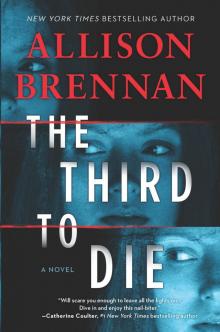 The Third to Die
The Third to Die Nothing to Hide
Nothing to Hide No Way Out
No Way Out Cold as Ice
Cold as Ice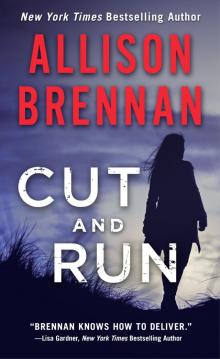 Cut and Run
Cut and Run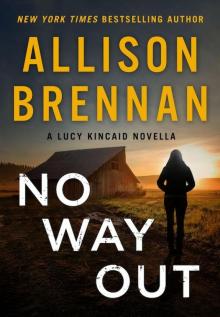 No Way Out (Lucy Kincaid Novels)
No Way Out (Lucy Kincaid Novels) Storm Warning
Storm Warning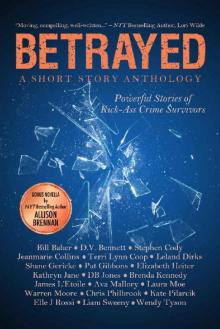 Betrayed: Powerful Stories of Kick-Ass Crime Survivors
Betrayed: Powerful Stories of Kick-Ass Crime Survivors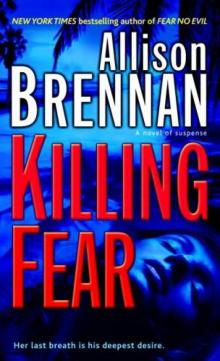 Killing Fear pb-1
Killing Fear pb-1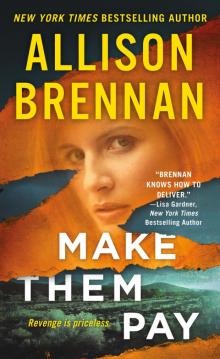 Make Them Pay
Make Them Pay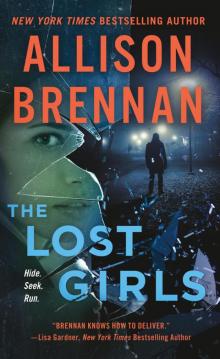 The Lost Girls
The Lost Girls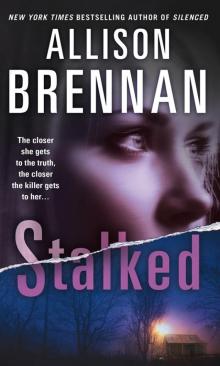 Stalked
Stalked Killing Justice
Killing Justice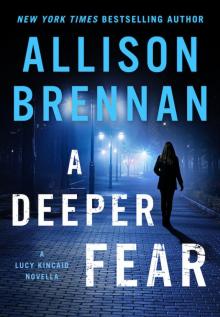 A Deeper Fear
A Deeper Fear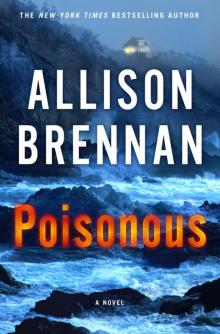 Poisonous
Poisonous Fear No Evil
Fear No Evil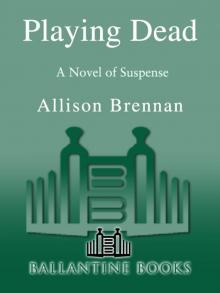 Playing Dead
Playing Dead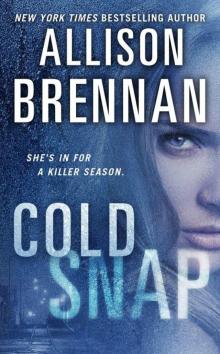 Cold Snap
Cold Snap Vacation Interrupted
Vacation Interrupted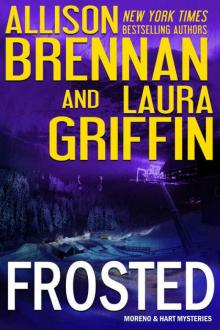 Frosted (Moreno & Hart Mysteries)
Frosted (Moreno & Hart Mysteries)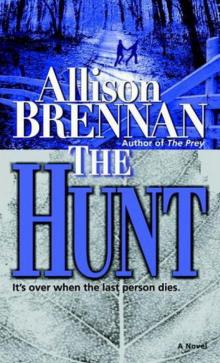 2 - The Hunt
2 - The Hunt Stolen
Stolen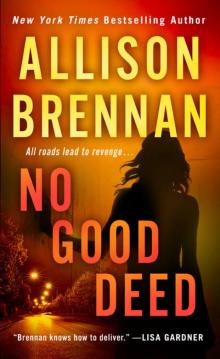 No Good Deed
No Good Deed Cutting Edge
Cutting Edge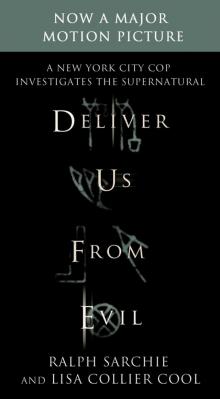 Deliver Us from Evil
Deliver Us from Evil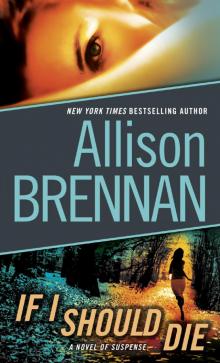 If I Should Die
If I Should Die Speak No Evil
Speak No Evil Silenced lk-4
Silenced lk-4 Original Sin sds-1
Original Sin sds-1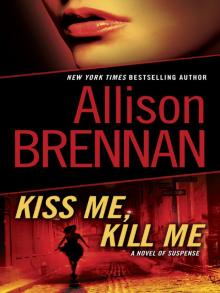 Kiss Me, Kill Me lk-2
Kiss Me, Kill Me lk-2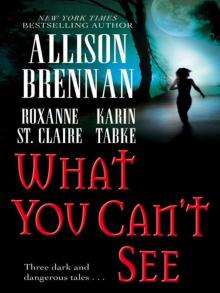 What You Can’t See
What You Can’t See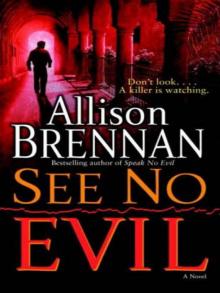 See No Evil
See No Evil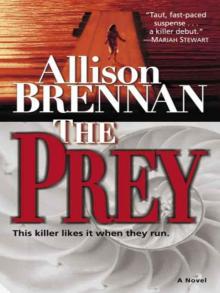 The Prey
The Prey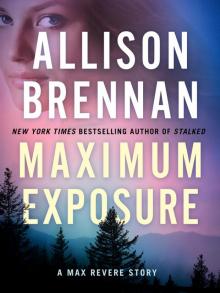 Maximum Exposure
Maximum Exposure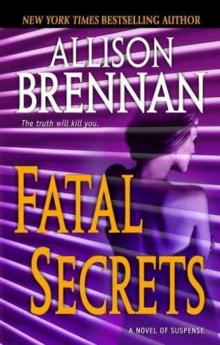 Fatal Secrets f-2
Fatal Secrets f-2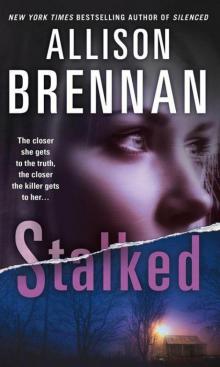 Stalked lk-5
Stalked lk-5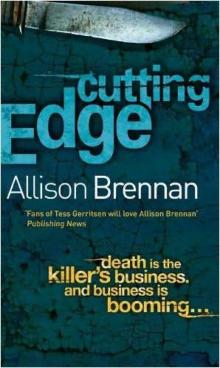 Cutting Edge f-3
Cutting Edge f-3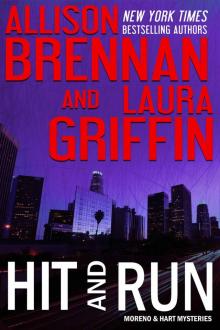 Hit and Run (Moreno & Hart Mysteries)
Hit and Run (Moreno & Hart Mysteries)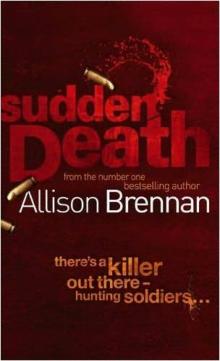 Sudden Death f-1
Sudden Death f-1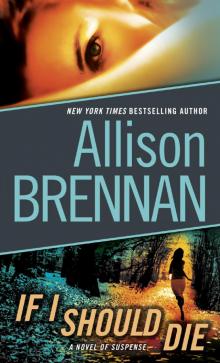 If I Should Die lk-3
If I Should Die lk-3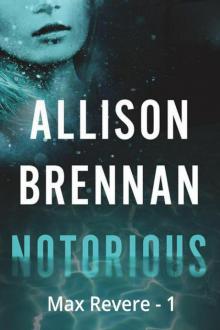 Notorious
Notorious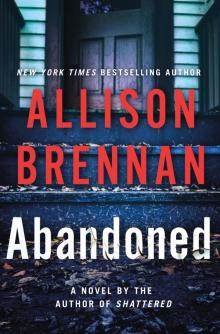 Abandoned
Abandoned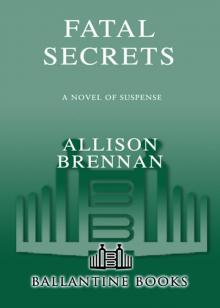 Fatal Secrets
Fatal Secrets The Hunt
The Hunt Carnal Sin sds-2
Carnal Sin sds-2 Love Is Murder
Love Is Murder Lost and Found
Lost and Found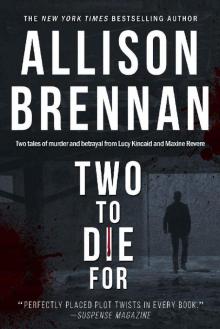 TWO TO DIE FOR
TWO TO DIE FOR Breaking Point
Breaking Point Best Laid Plans
Best Laid Plans Carnal Sin
Carnal Sin Silenced
Silenced Dead Heat
Dead Heat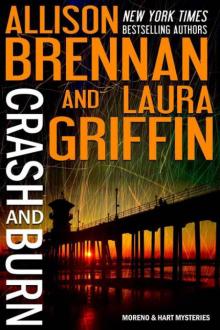 Crash and Burn
Crash and Burn Sudden Death
Sudden Death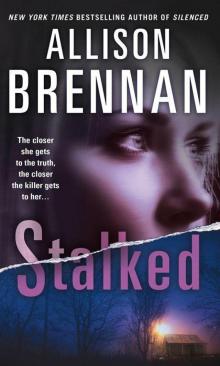 Lucy - 05 - Stalked
Lucy - 05 - Stalked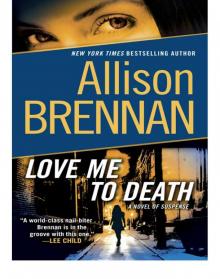 Mortal Sin
Mortal Sin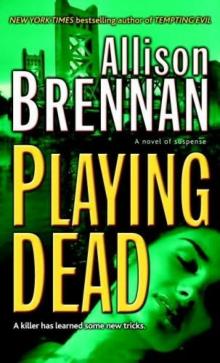 Playing Dead pb-3
Playing Dead pb-3 Kiss Me, Kill Me
Kiss Me, Kill Me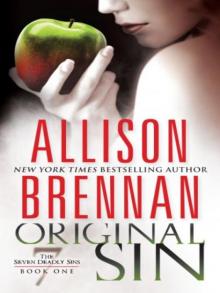 Original Sin: The Seven Deadly Sins
Original Sin: The Seven Deadly Sins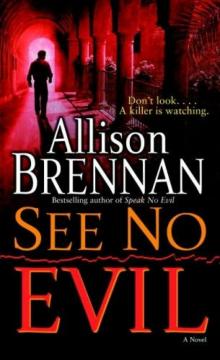 See No Evil e-2
See No Evil e-2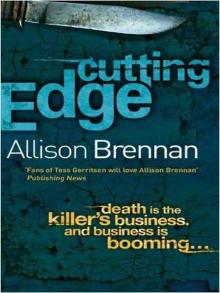 Cutting Edge: A Novel of Suspense
Cutting Edge: A Novel of Suspense Original Sin
Original Sin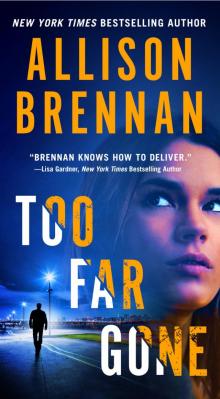 Too Far Gone
Too Far Gone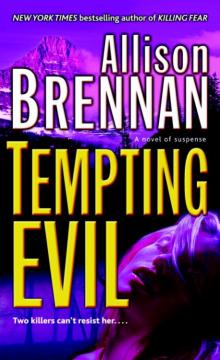 Tempting Evil
Tempting Evil Shattered
Shattered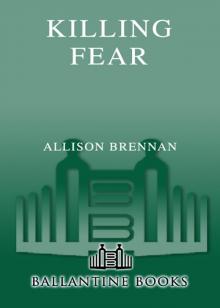 Killing Fear
Killing Fear Murder in the River City
Murder in the River City Love Is Murder (lucy kincaid)
Love Is Murder (lucy kincaid)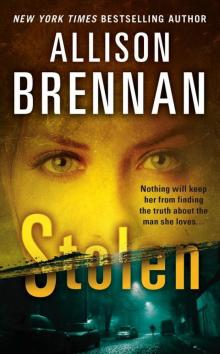 Stolen (Lucy Kincaid Novels)
Stolen (Lucy Kincaid Novels)